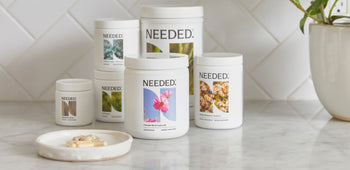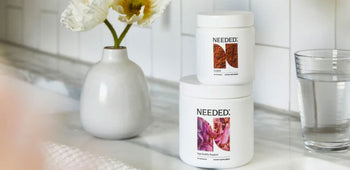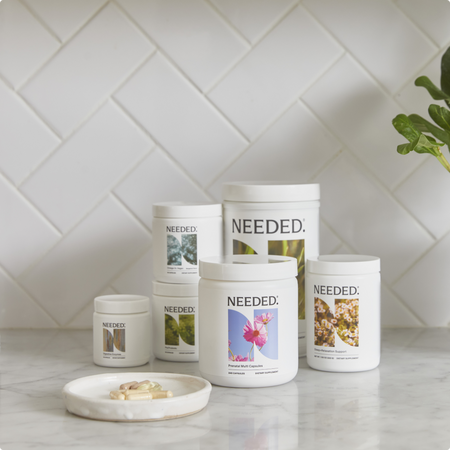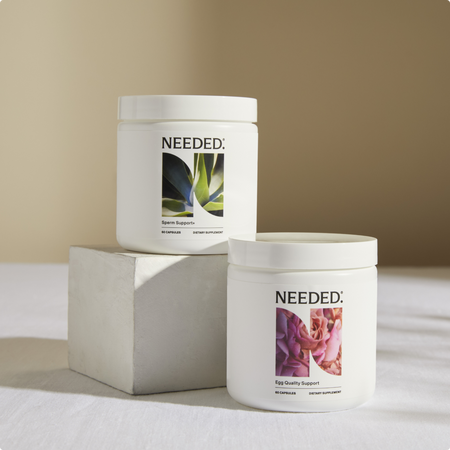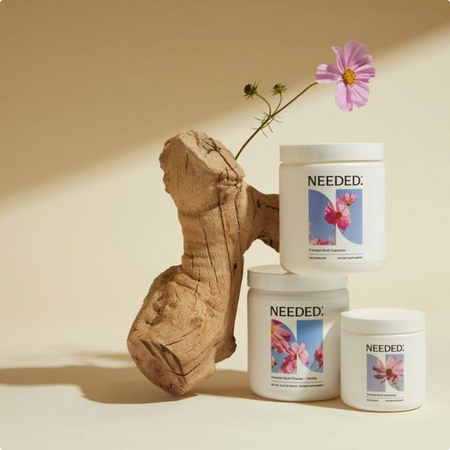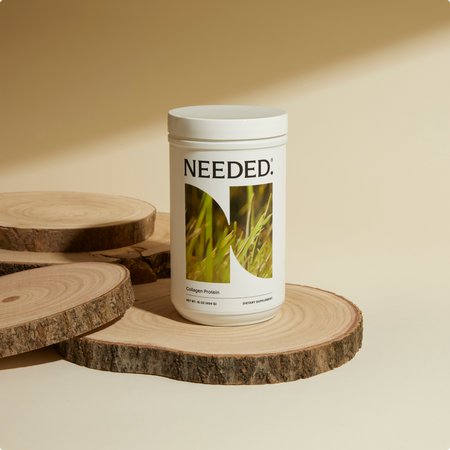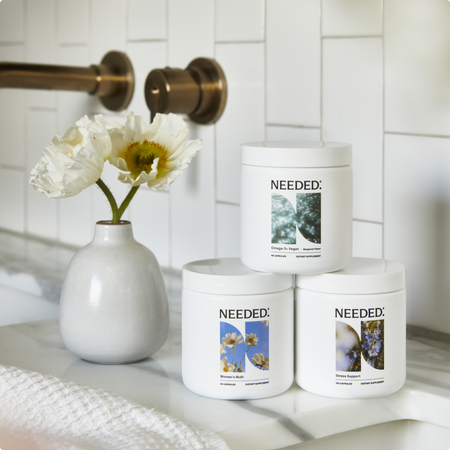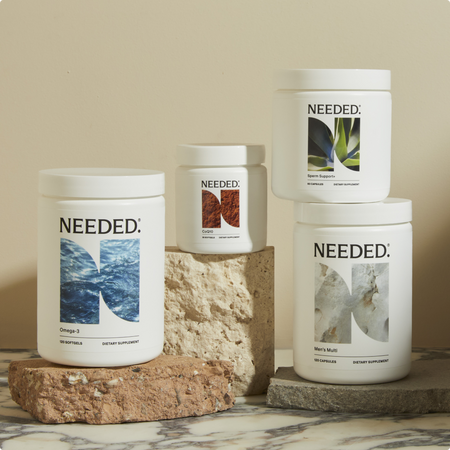An Introduction to Pregnancy Allergies
Has your pregnancy been characterized by, well, a lot of sniffling? You’re not alone! Dealing with allergies or nasal congestion during pregnancy is common—up to 1 in 5 pregnant women experience it.
There are two main reasons you may struggle with the sniffles and other respiratory symptoms while pregnant: pregnancy rhinitis and allergies.
Below, we cover all you need to know about these two conditions, plus our suggestions for safe remedies for congestion (hint, hint: the neti pot!). Here’s to a pregnancy where you can breathe a little bit easier!
What Are Pregnancy Rhinitis and Allergies During Pregnancy?
Pregnancy Rhinitis
Pregnancy rhinitis occurs when a pregnant woman or person experiences nasal congestion, runny nose, and sneezing. It is generally caused by pregnancy-related hormonal changes. Pregnancy rhinitis is not caused by allergies and usually resolves after giving birth.
Pregnancy Allergies
Pregnancy allergies are allergic reactions like sneezing, itching, and nasal congestion during pregnancy, usually due to common allergens like dust, pet dander, or pollen. These are similar to regular allergies but may be more intense during pregnancy.
Neither of these conditions should harm your pregnancy or baby, not even in the first trimester. Luckily, you can usually treat pregnancy allergies with home remedies, natural approaches, and/or over-the-counter medication.
Practical Tips to Manage Pregnancy Rhinitis and Allergies
Managing pregnancy rhinitis or allergies can be one more thing on your already full plate (you're growing a person!), but you have several strategies you an use to ease your symptoms. We’ll cover actionable tips such as lifestyle adjustments, natural remedies, and supplements to help you breathe easier and feel more comfortable.
Avoid Allergen Triggers
One of the easiest ways to lessen your rhinitis or allergy symptoms is to reduce your exposure to allergens. Whether it’s certain plants (like cedar or ragweed), pet dander, mold, or other offenders, keeping them out of your nose is the best way to feel better.
Here are a few ways you can lessen allergen triggers:
- Regular cleaning and vacuuming of all areas where you spend time, including your bedroom (but don’t forget other areas, like your car!).
- Consider purchasing allergen-proof pillows and mattress covers.
- Purchase a high-quality air filter, such as a HEPA filter, which can remove up to 99.9% of dust, pollen, mold, and other allergens.
Some allergens are triggered by food. Keep a diary and see when your allergies flare up after certain meals. Try limiting those foods in your diet and see if it helps. Foods like dairy, sugar, and refined grains are common culprits for this.
Use Nasal Sprays and Washes
Can you use a Neti pot when you’re pregnant? The answer is, of course, yes! Neti pots are a powerful ally in the fight against pregnancy allergies. This simple way of rinsing your sinuses can provide wonderful relief from rhinitis or allergies—and research agrees! Be sure to use distilled or pre-boiled water and high-quality salt every time.
You can also consider using manufactured nasal saline rinses, sprays (such as Xlear, made with xylitol), or washes. These may not be quite as effective as a neti pot, but they are already made and mixed, so they are a huge benefit if you don’t always have distilled water on hand.
Note that you should limit neti pot or nasal wash use to no more than three times per day. Another option is using nasal strips; they're also available over-the-counter and help open the nasal cavities and alleviate congestion.
Try Supportive Herbs and Spices
Some herbs may alleviate decongestion and other allergy symptoms. However, always consult with your healthcare provider before using herbs during pregnancy, especially new ones.
Below are a few options:
- Ginger: Ginger has a wide range of benefits. It’s a natural antihistamine, potent antiviral agent, and immune booster, plus it’s been shown to help with rhinitis. You can boil a fresh piece of ginger and add lemon and local honey (see below!). Alternatively, you can dissolve ½ teaspoon of the dried form (note: the dried form can actually be a bit more potent and spicy than fresh ginger).
- Peppermint: This herb isn't just for the holiday season; peppermint can be soothing to the throat and nasal passages.
- Nettle: Although not as well known as ginger or peppermint, nettle has been shown to affect allergy symptoms.
- Garlic: Another option you likely have in your kitchen is good old garlic! Garlic is a natural antibacterial and antiviral that can help fight infections, viruses, and even allergies. The benefits are most potent with fresh raw garlic. Try it in homemade salad dressing, or add it to a sauce just before serving.
These herbs can be steeped in a tea or bowl with boiling water to make an herbal steam. To steam, steep the herbs like you would for tea, then hold your head above the bowl and inhale gently. You can cover your head with a towel to intensify the effect a bit.
Try Raw Local Honey
Local raw honey may help reduce allergies and boost immunity by gradually building your body’s tolerance to local pollen. One study found that people with birch pollen allergies who consumed locally sourced honey had 60% fewer symptoms, twice as many symptom-free days, and used 50% fewer antihistamines than those taking conventional medication. To get the best results, start eating local honey daily about four months before allergy season—but even during an outbreak, it may still offer relief.
You can often find local honey at your local farmers market or natural foods store. Although honey is safe during pregnancy, don’t overdo it—anywhere from a teaspoon to a tablespoon daily will be more than enough.
Try Apple Cider Vinegar (ACV)
Apple cider vinegar has antiviral and antimicrobial properties; anecdotally, some people find it helps with congestion. You can take a tablespoon on its own or try mixing it in a glass of water. You can also add ACV to salad dressings, sauces, and even soups (it has a tangy and tart taste). As a bonus, apple cider vinegar also helps with glucose metabolism and heartburn, another common pregnancy symptom.
Engage in Moderate Exercise
Exercising while you're pregnant and feeling congested might not sound fun, but research suggests that moderate exercise can actually help relieve nasal congestion. Try simple movements like walking, swimming, or yoga. No matter what movement you choose, stay hydrated and listen to your body so you don’t overexert yourself.
Elevate Your Upper Body for Sleep
One simple and effective rhinitis relief tip is to elevate your upper body when you sleep. This can lessen mucus and open your airways. Prop yourself up with a wedge pillow or several bed pillows, aiming for a 45-degree angle.
If you're looking for a bit more relief, add a humidifier and nasal strips to your elevated sleeping routine. Ahh!
Be Smart About Safe Medications
Of course, you want to be sure any meds you’re using are safe for pregnancy. Generally, over-the-counter options like saline sprays and antihistamines are considered safe. That goes for steroid nasal sprays like Nasonex® or Flonase®—these can be great if saline alone isn’t doing the trick.
Allergy medications like Claritin®, Zyrtec®, and Benadryl® are also considered safe. However, the active ingredient in Benadryl (diphenhydramine) may decrease milk supply or flow, so use caution if you are breastfeeding.
As always, check in with your doctor or midwife before starting any new medication while pregnant.
Breathe Better: Try Relaxation and Breathing Techniques
A breathing exercise may relieve nasal congestion, open your passageways and get the air flowing for at least a few minutes.
One option is Diaphragmatic Breathing, a deep breathing technique in which you use your diaphragm to expand your lungs fully. By breathing deeply through the nose and inhaling into your belly, you can increase your oxygen intake and clear nasal congestion.
Here's how you do it:
- Sit or lie down in a comfortable position.
- Place one hand on your chest and the other on your abdomen.
- Inhale deeply through your nose, allowing your abdomen to rise (your chest should remain still).
- Exhale slowly through your mouth, feeling your abdomen fall.
- Repeat for several minutes, focusing on slow, deep breaths.
Another technique is Alternate Nostril Breathing, a yogic breathing practice that involves closing one nostril at a time while breathing deeply through the other. This technique helps clear nasal passages and reduce congestion.
Here's how you do it:
- Sit comfortably and relax your body.
- Use your right thumb to close your right nostril.
- Inhale deeply through your left nostril.
- Close your left nostril with the ring finger on your right hand, and release your right nostril.
- Exhale through your right nostril, then inhale through it.
- Close your right nostril again and exhale through your left nostril.
- Repeat for several rounds, focusing on your breath and nasal passages.
These breathing exercises for nasal congestion are safe, medication-free ways to relieve congestion during pregnancy.
FAQs About Allergies and Pregnancy Rhinitis
Is it safe to use a Neti pot while pregnant?
Yes! A saline wash via a neti pot is a safe way to help with congestion while pregnant. Be sure to use distilled or pre-boiled water and high-quality salt.
How can I clear my sinuses while pregnant?
There are several ways to clear your sinuses while pregnant, including saline washes (like a Neti pot), over-the-counter medication, breathing techniques, sleeping while elevated, and more.
How can I unblock my nose while pregnant?
There are several natural ways to unblock your nose when you’re pregnant, many of which are effective if you're trying to avoid medication. Consider using a Neti pot or another saline nasal wash, nasal strips, or special breathing techniques. If your congestion persists, speak to your doctor or midwife.
Can I use nasal saline while pregnant?
Yes! Nasal saline is safe and effective during pregnancy. It can be used up to three times a day.
Can pregnancy rhinitis affect my baby?
As annoying as it is, the good news is pregnancy rhinitis will not affect your baby. You can also do plenty of things to reduce nasal congestion so you can feel some relief.
Are allergy medications safe during pregnancy?
Most allergy medications are safe during pregnancy, but it is best practice to check with your doctor or midwife before taking any new medication, including those sold over-the-counter.
What’s the difference between pregnancy rhinitis and seasonal allergies?
Pregnancy rhinitis is a condition where a pregnant woman or person experiences nasal congestion and other symptoms because of pregnancy-related hormonal changes. Seasonal allergies are the body's immune response to allergens at certain times of the year. Allergies can be worse for pregnant people, and both conditions can occur simultaneously.
Can I prevent pregnancy rhinitis?
Unfortunately, no. While you can’t prevent the sniffing and sneezing of pregnancy rhinitis, there are plenty of things you can do to ease the symptoms and feel better. From the Neti pot to over-the-counter meds, you have options!
When should I see a doctor about allergies or rhinitis during pregnancy?
Feel free to mention your allergies or rhinitis symptoms to your doctor or midwife whenever you like. It’s never too early or late in pregnancy to get support and start breathing better.
Key Takeaways
However you decide to manage your pregnancy rhinitis, there are tons of pregnancy-safe remedies out there to help you feel better.
Avoid allergens, use nasal rinses and sprays (like the neti pot), try natural remedies like herbs or local honey, turn on your air filter and the humidifier, and more.
Consult with your healthcare provider as needed to make sure whatever you’re trying is safe and makes sense for you and your pregnancy. Wishing you easier breathing as you grow your little one!
